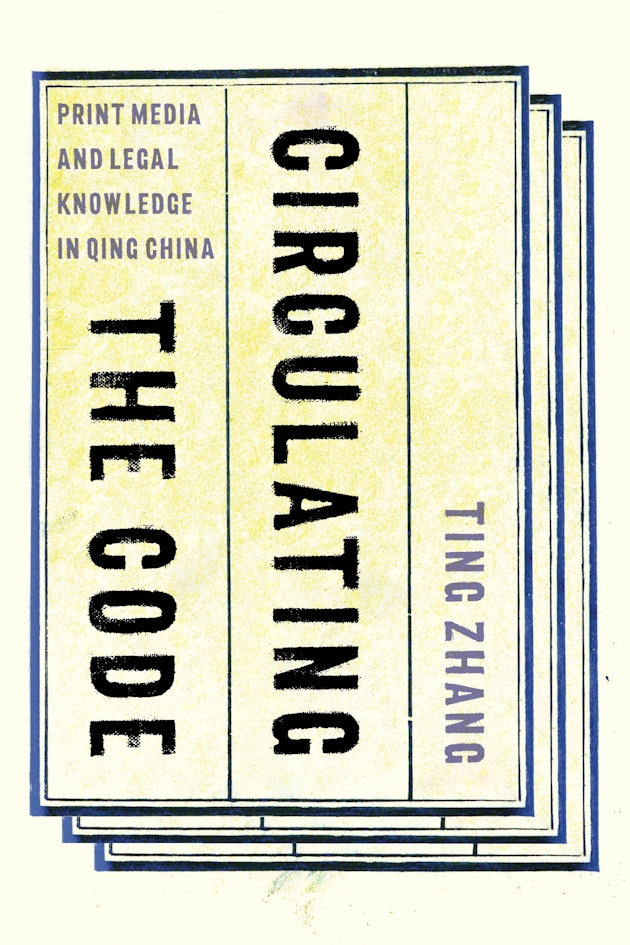Contrary to longtime assumptions about the insular nature of imperial China’s legalPraise for the book:
system, Circulating the Code demonstrates that in the Qing dynasty (1644–1911) most legal books were commercially published and available to anyone who could afford to buy them. Publishers not only extended circulation of the dynastic code and other legal texts but also enhanced the judicial authority of case precedents and unofficial legal commentaries by making them more broadly available in convenient formats. As a result, the laws no longer represented privileged knowledge monopolized by the imperial state and elites. Trade in commercial legal imprints contributed to the formation of a new legal culture that included the free flow of accurate information, the rise of nonofficial legal experts, a large law-savvy population, and a high litigation rate.
Comparing different official and commercial editions of the Qing Code, popular handbooks for amateur legal practitioners, and manuals for community legal lectures, Ting Zhang demonstrates how the dissemination of legal information transformed Chinese law, judicial authority, and popular legal consciousness.
"Takes recent developments in the field of Chinese legal history to a new level by combining the study of law with the study of book history and print culture." - Li Chen
"Overturns several stereotypes about Chinese law, most importantly that Chinese people did not know what the law was." - Madeline Zelin
"Makes a very important corrective to our understanding of the dissemination of legal information in the late imperial period by defining the ways in which such information was transmitted broadly, even to illiterate commoners. Circulating the Code expands our understanding of the range of works printed during the commercial publishing boom of the late Ming and Qing." - Cynthia Brokaw
Further information is available here.
--Mitra Sharafi
